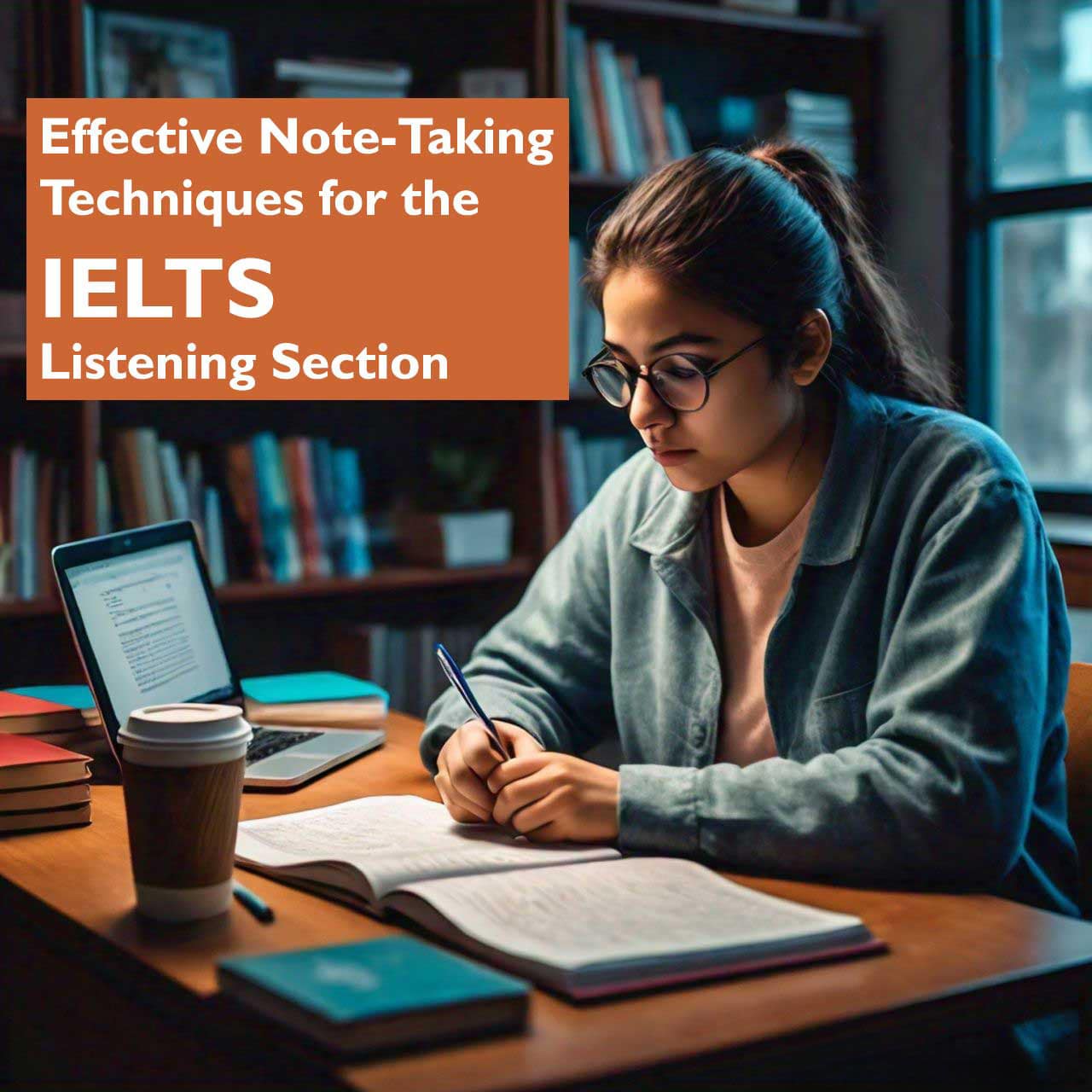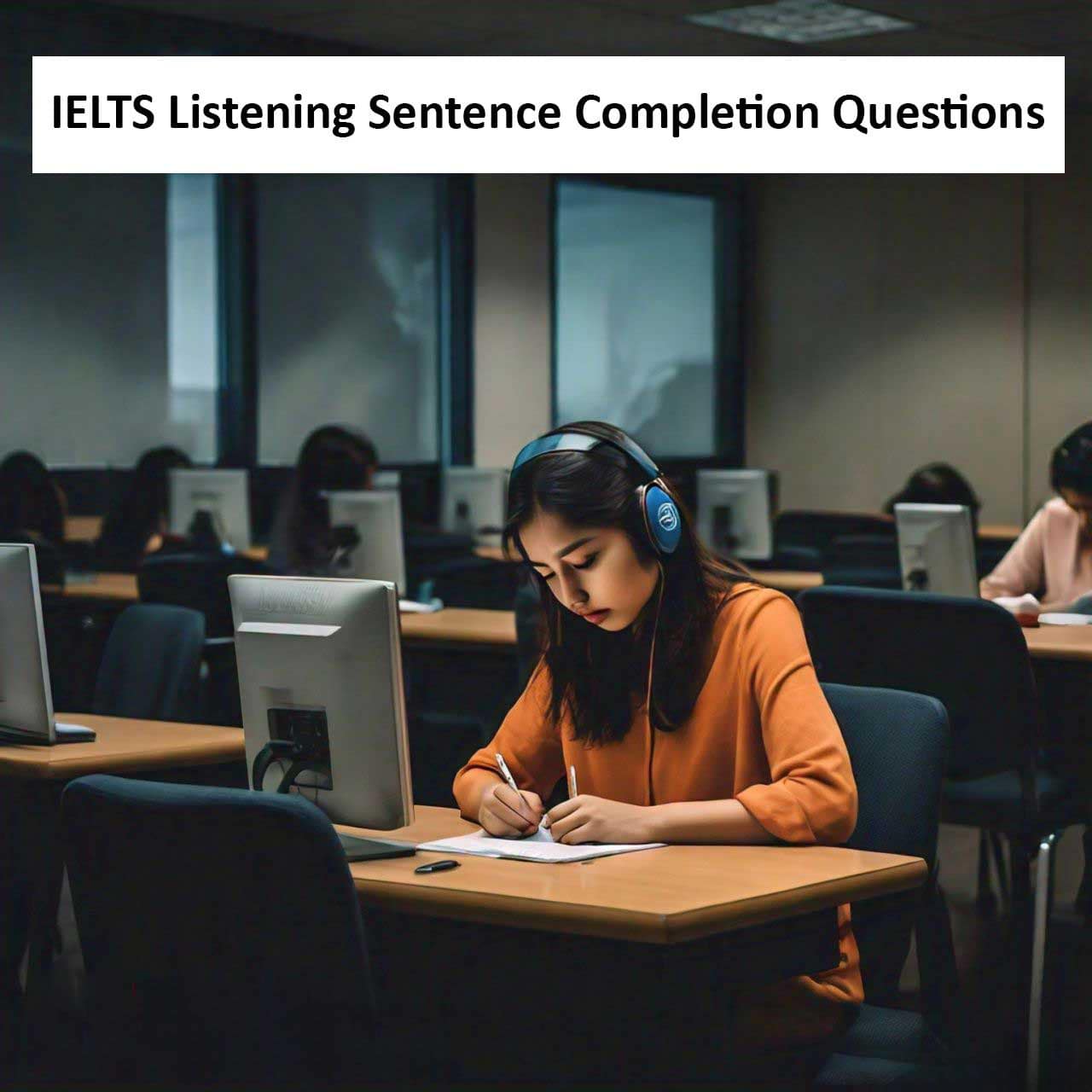Mastering effective note-taking techniques is crucial for success in the IELTS (International English Language Testing System) Listening section. This part of the exam assesses your ability to understand spoken English in various contexts, such as conversations, lectures, and presentations. In this blog post, we will explore key note-taking strategies specifically tailored for the IELTS Listening section, helping you improve your comprehension and performance on test day.
Importance of Note-taking in IELTS Listening
1. Retaining Key Information: Note-taking helps you capture important details, such as names, dates, numbers, and main ideas, which can be crucial for answering questions accurately.
2. Organizing Information: By summarizing spoken content in notes, you can organize the information in a way that makes it easier to recall during the exam.
3. Managing Time Effectively: Efficient note-taking allows you to focus on listening actively without worrying about remembering every detail, thus maximizing your listening comprehension within the given time frame.
Essential Note-taking Techniques
1. Abbreviations and Symbols:
– Use abbreviations and symbols to write quickly and save space. For example, “w/” for “with,” “govt” for “government,” or arrows and asterisks to indicate important points.
2. Keywords and Key Phrases:
– Listen for keywords and key phrases that convey essential information. Write them down to help you remember the main ideas and details later.
3. Main Ideas vs. Supporting Details:
– Distinguish between main ideas and supporting details. Focus on jotting down main points while using abbreviations or short phrases for supporting information.
4. Visual Aids:
– Use visual aids such as arrows, circles, and underlining to highlight important information or relationships between concepts.
5. Listening for Signals:
– Pay attention to signal words and phrases that indicate changes in topic, contrasting information, examples, or explanations. Note-taking on these transitions can help you follow the flow of the conversation or lecture.
6. Tables or Diagrams:
– If applicable, draw simple tables or diagrams to represent relationships between concepts or to organize information more visually.
Practice and Familiarization
1. Practice with Sample Tests:
– Use IELTS Listening practice tests to familiarize yourself with different types of audio recordings and question formats. Practice note-taking while listening and answering questions.
2. Varying Listening Speeds:
– Practice note-taking with recordings of varying speeds, including fast-paced conversations and slower-paced lectures. This will help you adapt to different speaking styles and accents.
3. Focused Listening Exercises:
– Engage in focused listening exercises where you listen to short passages or dialogues and practice taking notes on the main points and details.
Tips for Test Day
1. Listen for Context:
– Pay attention to the context of the conversation or lecture to anticipate the type of information that may be relevant for note-taking.
2. Use Short Forms:
– Develop your own system of shorthand or abbreviations that you are comfortable with and can quickly interpret during the exam.
3. Review and Revise Notes:
– Take a moment to review and revise your notes during the short break between sections in the Listening test. This will help reinforce your memory of the content.
4. Stay Focused:
– Maintain concentration throughout the listening passages, as missing even a few seconds of information can impact your ability to answer questions accurately.
Conclusion
Effective note-taking is a valuable skill for the IELTS Listening section, allowing you to capture essential information efficiently and improve your overall comprehension. By practicing note-taking techniques tailored to the demands of the exam, you can enhance your ability to retain key details, organize information, and answer questions effectively. Remember to incorporate these strategies into your study routine and approach the Listening section with confidence on test day. With practice and preparation, you’ll be well-equipped to tackle the IELTS Listening test successfully.



